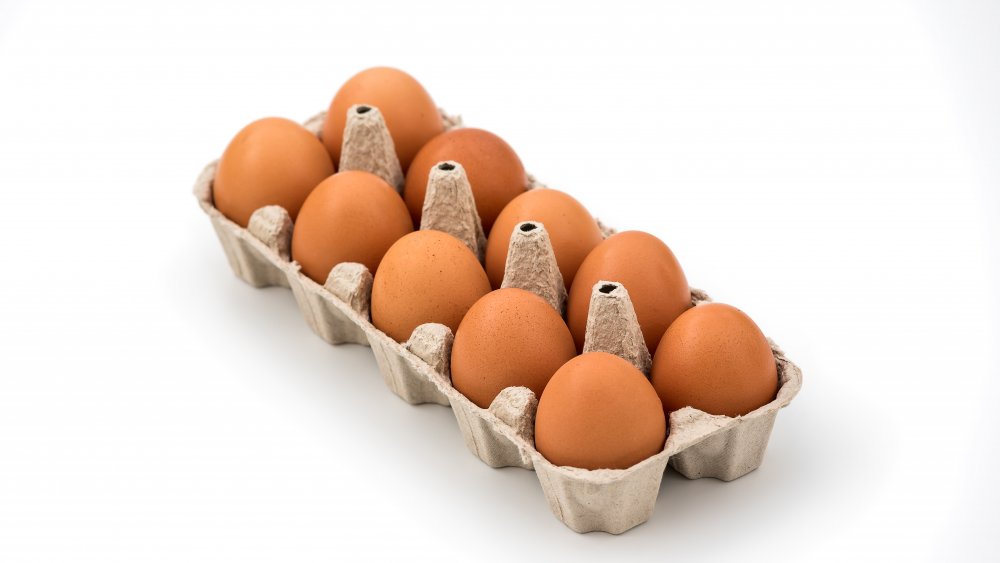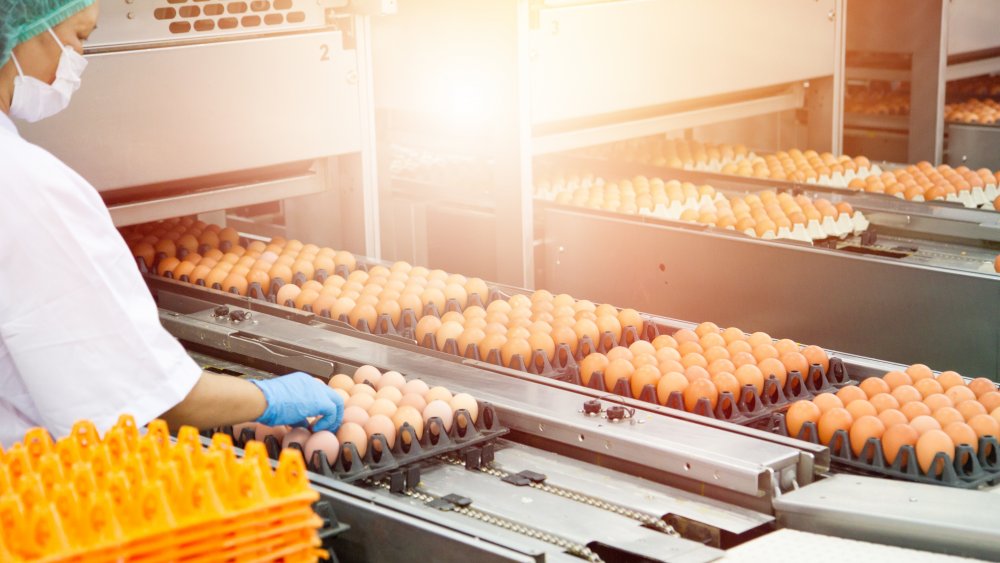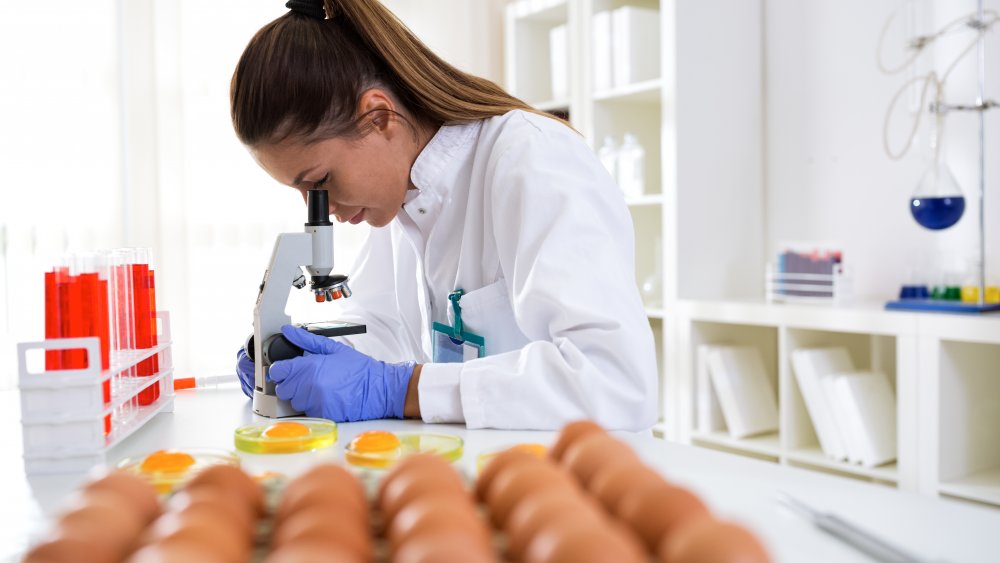What The New Egg Inspection Rules Mean For You
When you blinked, you would have missed it because effective immediately, the Trump administration has changed the way egg inspections are being carried out, in the first update the industry has had in half a century. The change involves pulling full-time government inspectors in plants that produce egg products, and it allows agriculture companies like Cargill and Sonstegard Foods to employ food safety systems and procedures which can be designed for their factories and equipment (via Reuters).
The new rule requires egg product plants to develop and implement standards under the Hazard Analysis and Critical Control Points (HACCP) system, and the Sanitation Standard Operating Procedures (SSOPs). The USDA, which has been put in charge of egg product inspections, will continue to test for signs of salmonella and listeria in egg products. The Food Safety and Inspection Service's (FSIS) Administrator, Paul Kiecker, said, "Requiring egg product plants to develop food safety systems and procedures similar to meat and poultry requirements is a significant milestone in modernizing our inspection system." He also promised that the change would not mean the USDA would be less vigilant about protecting the public against foodborne illnesses.
The changes mean less government oversight
This policy change means that under the new system, a government inspector will no longer be onsite at egg production facilities all day to make sure things are going smoothly. Instead, Inspectors are expected to work under a new "patrol" system, where they will visit multiple plants a day (via Reuters). We, as consumers, will also need to rely on companies to set up their own safety standards that conform to HACCP standards which were adopted by the government in 1997.
The system is, by the FDA's definition, assesses food safety "through the analysis and control of biological, chemical, and physical hazards from raw material production, procurement, and handling, to manufacturing, distribution, and consumption of the finished product." Each part of the food industry is expected to take the initiative to protect food while they are producing it.
Consumer and environmental groups aren't happy about the change
Before the change, two agencies assumed government oversight over the production of eggs – the USDA and the FDA. The FDA inspects shelled eggs while the USDA inspects egg products – liquid, frozen, and dehydrated eggs (via Food Safety News). The FDA oversees chicken feed, but the chicken facility falls under the USDA. The split meant it was actually difficult for both departments to look into keeping eggs and egg products safe for consumers, and the confusing overlap in jurisdiction decided how often a government inspector would drop by.
Reuters says that back in 2018, the environmental group Food & Water Watch raised the concern that a patrol system could make inspections less effective. If we're concerned about the new system that has been put in place, the burden is now on us as consumers to make sure we don't suffer as a result of the policy changes.


